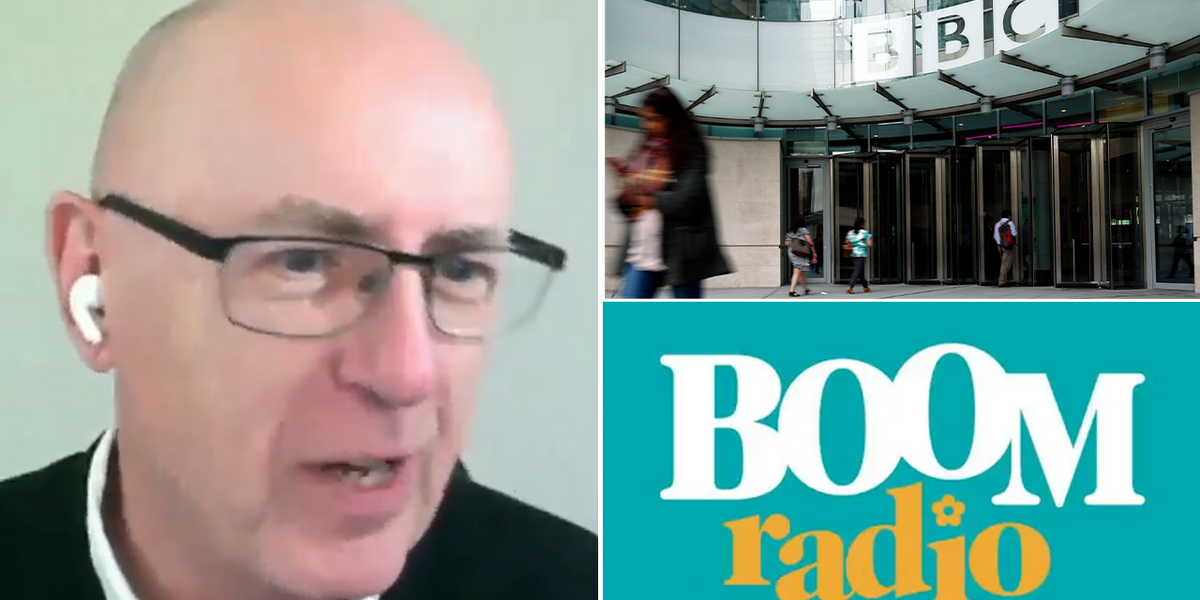Boom Radio CEO Phil Riley has questioned how the BBC can afford to launch a new Radio 2 spin-off station that threatens to “kill off” his independent broadcaster.
Speaking on GB News, Riley warned that the BBC’s plans to create a station focusing on music from the 1950s to 1970s would devastate his company’s future.
The radio veteran, who launched Boom Radio in 2021, said the proposed BBC station would directly compete with his service targeting older listeners.
Boom Radio has grown rapidly since its launch, reaching over half a million weekly listeners by mid-2024 with 14 per cent growth in the last year.
The station was created when Riley and his partner David Lloyd spotted an opportunity after BBC Radio 2 shifted towards attracting younger audiences.
“We were at the end of our careers and felt like there was an opportunity to launch something that would be of more appeal to those over 60 listeners,” Riley told GB News.
The station now boasts around one million regular listeners who tune in for extended periods.
Riley revealed the personal investment behind Boom Radio’s launch. “We spotted a gap, we put our own hands into our own pockets and used our life savings and pension funds to get this thing running,” he told GB News.
LATEST DEVELOPMENTS
He questioned the BBC’s financial priorities: “The BBC is also constantly telling people they are strapped for cash. Where have they got the money from for this? It’s ridiculous.”
The station operates with less than ten staff members, most part-time, and 25 presenters working from their homes.
Phil Riley joined Lee Anderson on GB News
GB NEWS
The BBC’s own analysis acknowledged the spin-off “would significantly hamper Boom Radio’s financial performance”, yet the broadcaster is pressing ahead regardless.
Riley estimates the new station could cost Boom Radio about 50 per cent of its projected revenue within two years.
“We think we’ll lose somewhere between 30 and 40 per cent of our current listenership,” he told GB News.
The BBC has proposed some changes, including more speech content, and increased its planned annual budget from £420,000 to £660,000.
BBC Broadcasting HouseGETTY
In response to the concerns, BBC Director of Music Lorna Clarke defended the plans, saying they had “significantly” redeveloped the Radio 2 extension proposal.
“Our music extensions allow us to support new music, showcase British talent, resurface performances from the BBC’s unrivalled archive,” Clarke said.
She added that the growth of commercial radio showed “there’s room for multiple ways to bring genres and decades to life for audiences”.
The final decision on the BBC’s plans now rests with Ofcom.

